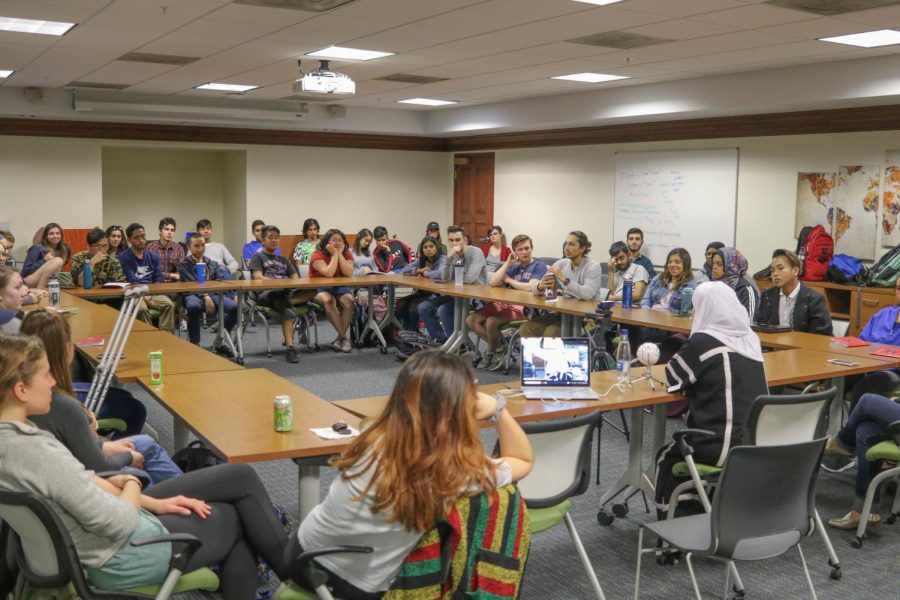HIJAB AWARENESS DAY at SLU
In the midst of Atlas week this year was Hijab Awareness Day. The Muslim Students Association organized an event to mark the occasion, “Women’s Rights in Islam.” The discussion was introduced by Dr. Haifaa Younis, who was invited by the MSA to speak. The dialogue was mainly focused on the roots of feminism in Islam, rights of women and the hijab itself.
Younis began by explaining that she enjoys participating in discussions, particularly those with non-Muslim youths. According to Younis, it is in these discussions that she could be most effective in shedding light on the truth of Islam.
The word “hijab,” Younis clarified, does not translate to “head cover” like many believe, it actually translates to “barrier.” “So when I’m covering my hair,” she explained, “I’m putting a shield between my hair and whoever else.”
A hijab is also not only a headcover. “It is meant to cover your whole body,” Younis said, “if I know your size, you’re not wearing proper hijab.”
Specifically, she admitted that “you may see people wearing it differently,” which she deemed totally fine, “it depends where you are from.”
“Religion is a choice. So if you’re a part of a religion, every action that you do under the scope of that religion is going to be a choice,” said one member of the MSA. “So whether you choose to follow things that are ordained in your religion or you choose not to, that’s a personal lifestyle that you’ve chosen.”
Younis went on to say that hijab is not restricted only to women in Islam. “For the men, it’s the same thing also; loose clothing,” said Younis. “That’s the whole idea of the hijab.”
Younis is a practicing obstetrician and gynecologist, originally from Iraq. Her pursuit of Islamic knowledge began around the time of her studies at Washington University, where she simultaneously began to study with various Islamic scholars from across the United States.
She went on to become the founding member of the Jannah Institute, a non-profit organization based in St. Louis. The institute began Islamic educational programs for women and young girls in 2013, with all kinds of different courses ranging from both online and onsite, weekend or weekday, seminars, halaqahs and more.
The MSA had invited students to try wearing a hijab for the day prior to the event and free hijabs were available for pickup from the MSA table the week leading up to it. One student described her experience wearing a hijab for a day as one full of judgement. “Constantly, there are people asking me about it,” she explained. “It’s been a shock to my friends and colleagues.” Her friend from Pakistan helped her put it on, but she explained “I am constantly messing with it because I feel like it’s showing some of my hair and I have to readjust it.” Relating to those in the room that were actually practicing Muslims, she said “I can only imagine the transition process.”
“This is the flag of my religion,” Younis summed it up. “This is what I’m supposed to be as a Muslim. It is different, it is difficult, it is not the usual, simply because I live in a time and society in which it is not the norm.”
Your donation will support the student journalists of Saint Louis University.




